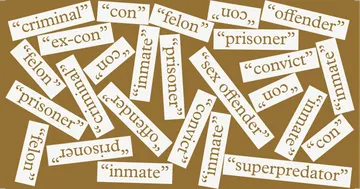This is The Marshall Project - Cleveland’s newsletter, a twice monthly digest of criminal justice news from around Ohio gathered by our staff of local journalists. Want this delivered to your inbox? Subscribe to future newsletters.
Intimate portraits capture family coping years after police shooting
Cleveland photographer Michael Indriolo met Diamond Belmonte the day of her brother’s funeral. It was 2021 and Vincent Belmonte had been fatally shot by an East Cleveland police officer who attempted to stop his car for a loud muffler.
Diamond Belmonte, Vincent Belmonte’s sister, shouts while protesting Vincent’s killing in East Cleveland on March 5, 2021. Photo: Michael Indriolo
Indriolo continued to follow Diamond and her siblings for three years as they settled into a new reality of mourning and marching and pushing for answers and accountability in Vincent’s death, and the deaths of other Black men killed by police in Ohio after him.
Indriolo’s photo essay, published by The Marshall Project and Signal Cleveland, also reveals intimate moments, as public attention to Vincent’s case fades, and his siblings struggle to cope and keep his memory alive.
Ohio Sen. JD Vance’s legislative record on criminal justice
With freshman Senator JD Vance joining former President Donald Trump’s reelection campaign as his vice presidential pick, The Marshall Project - Cleveland reviewed his brief congressional record on criminal justice issues.
Vance, a 39-year-old military veteran, has pushed or co-sponsored nearly two dozen bills to criminalize gender-affirming care for minors, curtail immigration at the U.S.-Mexico border and quiet free speech protests on campuses. His proposals would financially punish cities that don’t cooperate with federal immigration officials or universities that fail to dismantle protest encampments.
He would also repeal a 1994 law that prohibits demonstrations from blocking patient access to abortion clinics and nullify police reform passed in 2022 by the Washington, D.C., city council.
Got questions about the justice system? Ask us.
The justice system can be confusing. To ease the complexities, we’re starting a regular feature in our newsletter with our staff answering your questions on all things criminal justice. That list includes policing, the jail and prison system, Ohio laws, prosecutors and the courts in Cuyahoga County.
We welcome the chance to answer questions about how things work or are supposed to work. We take pride in busting myths, and making sense of stats and numbers.
Have a question you’d like us to tackle? Ask us. If we can answer it, we will. Submit questions here and find all the questions we’ve answered on our website.
One reader asked us about educational opportunities for people incarcerated at state prisons.
Question: What sort of educational opportunities are available to convicted inmates? I am interested in learning more about the rehabilitation and educational options for the convicted.
Answer: The Ohio Central School System serves as the school system for all of Ohio’s state prisons. It offers basic education, high school diplomas, apprenticeships and skilled trades. Incarcerated people can also take college classes through Ashland University, Kent State University, Marion Technical College, Sinclair College, North Central State Community College and Ohio University. Ohio is one of only a few states in the country to have college classes available in every state prison, according to the Ohio Department of Rehabilitation and Correction.
Technical programs are also available to men and women inside Ohio prisons ranging from auto technology to barbering to carpentry. Nearly 4,000 incarcerated students participated in the Perkins Career and Technical Education program in Ohio prisons in 2023, according to Becky Crance of the Ohio Department of Education and Workforce’s Office of Career-Technical Education.
However, where you are housed dictates which courses you can take. Each prison has its own programming and course options. If an incarcerated person would like to join a Commercial Driver License program, for example, they have to request a transfer to the Richland Correctional Institution, where that program is provided.
Ohio Society of Professional Journalists honors reporting
A collaboration between Marshall Project - Cleveland staff writer Mark Puente and WEWS News 5 investigator Tara Morgan on debt-related driver’s license suspensions was recognized by the Ohio Society of Professional Journalists. The series, which also got the attention of state lawmakers, won first place for best investigative reporting by digital media.
Around the 216
- The Ohio Supreme Court has ordered the financially struggling city of East Cleveland to pay a $20 million judgment from 2019, plus $10 million in interest, to a man forcefully arrested during a 2012 traffic stop, Cleveland.com reports. The man, who filed a lawsuit in 2014, was detained in a storage room for four days after the arrest.
- The co-chairs of the Cleveland Community Police Commission penned a six-page letter asking Mayor Justin Bibb to remove Commissioner Teri Wang, Signal Cleveland reported. Commission members have tried to remove Wang since January over allegations of harassment and disruption. Members called the police and canceled the Police Accountability Committee this month after telling Wang she must sit with the public, which she refused to do.
- The Ohio Bureau of Criminal Investigation is reviewing the death of a woman shot by officers July 17 in the parking lot of the Medina County Sheriff’s Office. Medina Police Chief Ed Kinney told WEWS 5 News that a member of the public alerted authorities inside the sheriff’s office building to the armed woman acting unruly in the parking lot.

